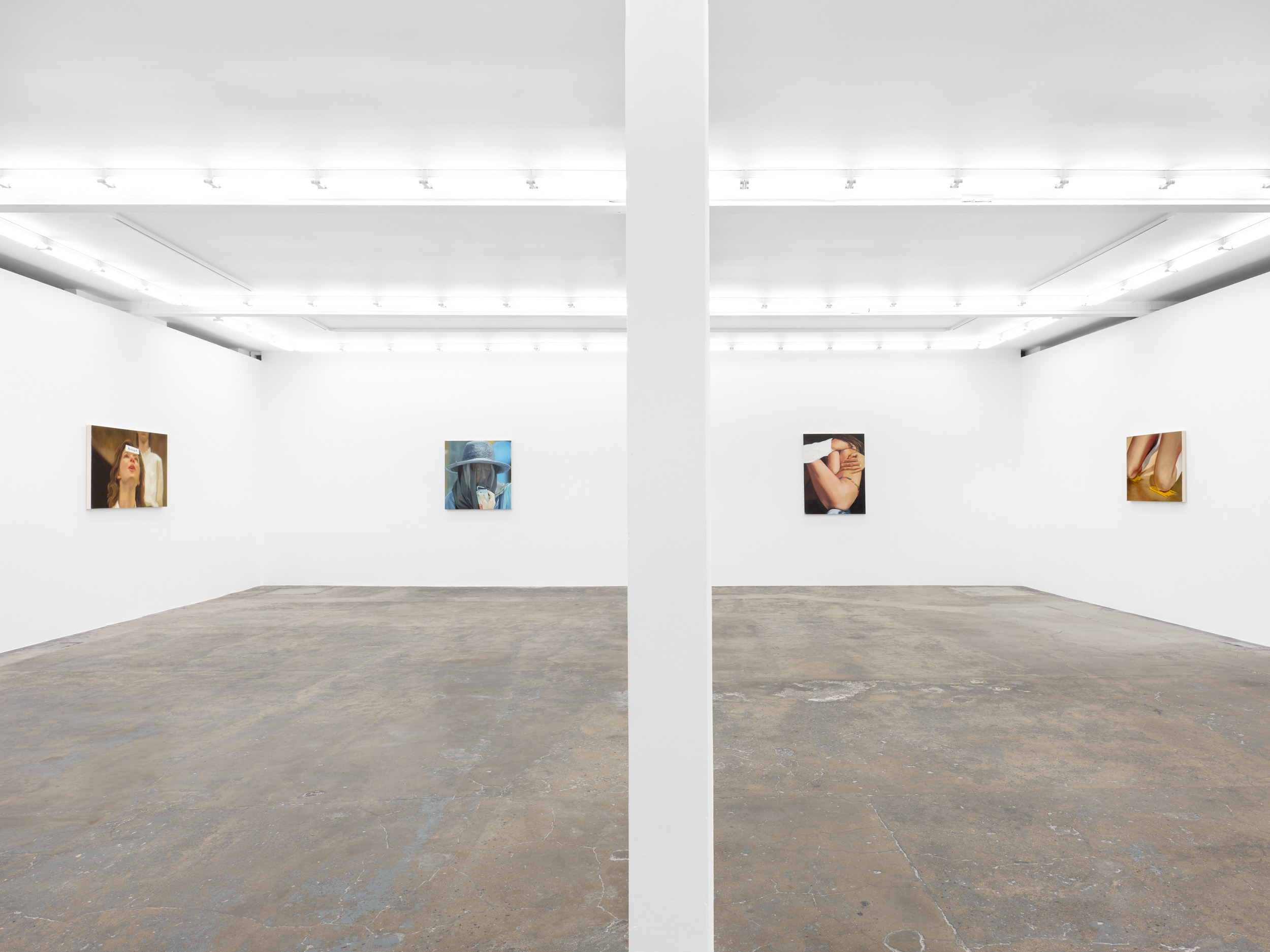In Woman with a juice box, Shannon Cartier Lucy’s most recent suite of paintings continue a subversion of the aesthetics of nostalgia, via a distortion of the visual language of American domesticity. In her work, the Nashville-based artist seeks to unearth repressed feelings and ideas, exposing the psychological claustrophobia of a past at once personal and collective.
In her most emotionally autobiographical group of works to-date, the artist combines her signature cropped compositions and anonymous figures with motifs from childhood. In their charged stillness, figures interact with objects including building blocks, a curling plastic straw, coloured pencils, a juice box and more, in order to engender a confronting tenor of oddly familiar discomfort within the exhibition. The uncanny combination of disobedience and estrangement with sentimental intimacy that continues to be characteristic of Lucy’s work here enables the artist to examine the psychological architecture of adulthood. In Woman with a juice box, the artist’s focus remains our relationship to our repressed memories, thoughts and feelings and by extension, how we unrelentingly seek their resolution. Lucy imagines and constructs her compositions akin to the way our subconscious builds dreams: through non-linear connections that often confuse and distort reality into an otherwise unforeseen sequence of images and perceptions.
The charged stillness of Lucy’s filmic scenes in Woman with a juice box betrays the influence of directors Robert Bresson and Michael Haneke on her work. Both filmmakers, while opposed in their understanding of the image and its ethics, share a rigorous belief in cinema as a moral act. Stylistically, Lucy borrows from the cinematography of these directors, with her paintings mimicking their disciplined form in their precise framing and restrained emotion. These decisions force the spectator into an active, often uncomfortable position. The artist similarly seeks to invoke a viscerally somatic response from the viewer with her works, reaching towards a different part of the mind than words can access. The ambiguous, nonspecific narrative within these paintings invites—and expects—a projection from the viewer, which in turn implicates them within the internal psychology of each work. For Lucy, as indeed for Bresson and Haneke, the act of looking becomes a moral responsibility.
In many of Lucy’s works, the theme of the ethereal disciplinary figure or parent re-emerges, to represent the wider systemic forces, social structures and external authority that individuals operate within, however unconsciously. In opposition to this, while still seeking comfort and care, gestures of childish rebelliousness engender a modality of defiance. This tension resides predominantly in the figure of the woman in the paintings, who occasionally resembles the artist herself, despite largely obscured features. By visualising an adult self in these works, punctured with a lexicon redolent of more immature frustrations and anxieties, Lucy exposes, then seeks to reintegrate, a secondary psychological plane—or subconscious emotional register—in the works. The inner child, a vulnerable innocent self that we each remain inextricably linked to, populates these works as much as it does our innermost psyche, replete with a similarly consequential need for emotional attendance. In Woman with a juice box, the outcome is a surreal proposition that converges present with past, wherein emotion confuses memory and comfort feels uneasy.

